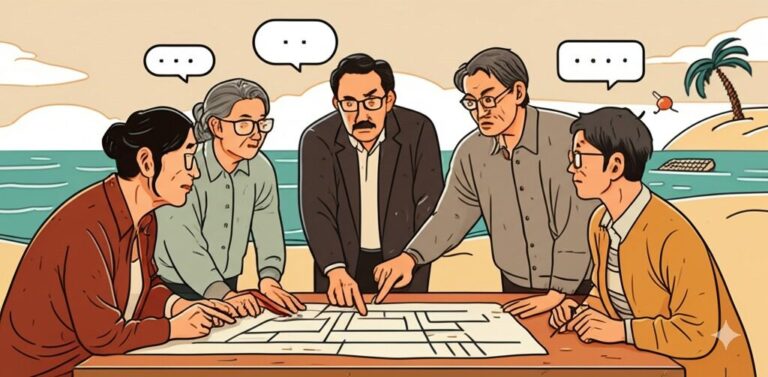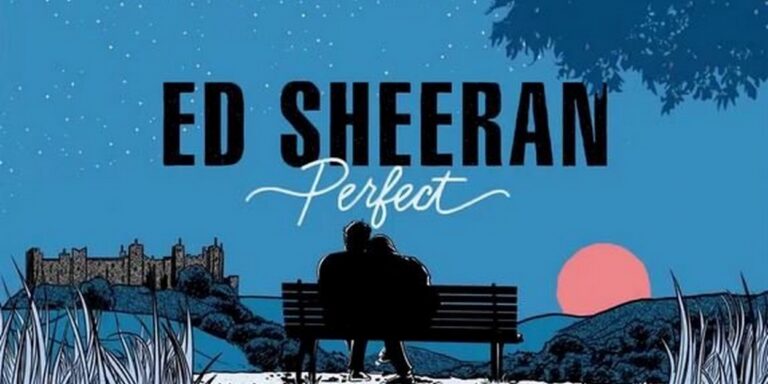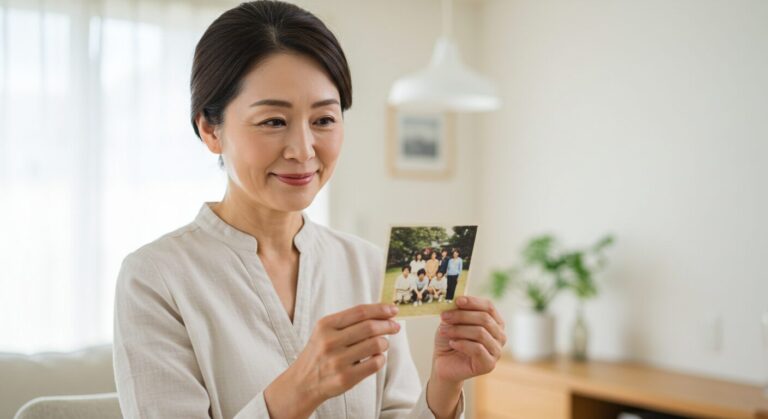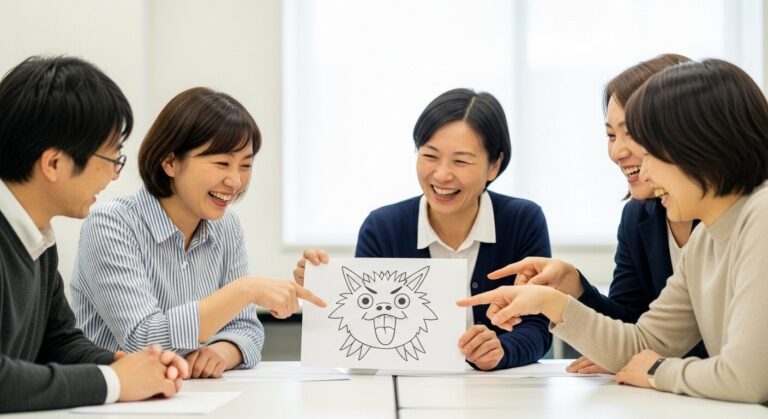2024-12-06: Solving a Problem
Podcast: Mari’s Restaurant Dilemma
Man: Welcome back. Today we’re going to look at a restaurant in Japan.
Woman: Okay.
Man: The restaurant owner is Mari.
Woman: Uh-huh.
Man: She’s been cooking for a long time.
Woman: Really? How long?
Man: 30 years. She makes very special food.
Woman: Wow. That’s a long time.
Man: Yes, it is. A lot of people love her food.
Woman: That’s great.
Man: Yeah, they go back to her rest- restaurant again and again.
Woman: I see.
Man: But Mari has a problem now.
Woman: Oh, no. What is it?
Man: Well, the area around her restaurant is changing.
Woman: Okay.
Man: A lot of young people live there now.
Woman: I see.
Man: And they like to eat different food.
Woman: What kind of food do they like?
Man: They like to go to new and exciting places, like modern cafes.
Woman: So they don’t want to go to Mari’s restaurant.
Man: Not as much anymore.
Woman: That’s a problem for Mari.
Man: Yes, it is.
Woman: Uh-huh.
Man: Mari needs to decide what to do.
Woman: It’s a tough decision.
Man: She can keep cooking the same way,
Woman: Okay.
Man: or she can change her restaurant.
Woman: I see.
Man: But change can be scary.
Woman: Yeah, it can.
Man: One young person wrote about Mari’s restaurant on their blog.
Woman: Okay.
Man: A blog is a website where people write their opinions. This person said they liked Mari’s restaurant.
Woman: Oh, yeah. Why?
Man: Because it felt familiar, like the past.
Woman: I see.
Man: It reminded them of their childhood.
Woman: That’s nice.
Man: Yes. Some people like that feeling.
Woman: What’s that feeling called?
Man: It’s called nostalgia.
Woman: Nostalgia?
Man: Yes.
Woman: Okay.
Man: But other young people did not like Mari’s restaurant.
Woman: Really? Why not?
Man: They said it was old-fashioned.
Woman: What does old-fashioned mean?
Man: It means it’s not new and exciting.
Woman: I see.
Man: They wanted something different.
Woman: Uh-huh.
Man: And they said the menu was hard to understand.
Woman: Oh, why was that?
Man: Well, the menu is in Japanese.
Woman: Oh. So maybe Mari needs to make a menu in English, too.
Man: That’s a good idea. Many young people in the area speak English.
Woman: Right, they come from different countries.
Man: So, Mari needs to make a decision.
Woman: Yes.
Man: It’s important for her business.
Woman: What’s a business?
Man: It’s like a shop or a restaurant.
Woman: Oh, okay.
Man: It’s where you sell things or food.
Woman: I see.
Man: Mari needs to think about her customers.
Woman: Yeah.
Man: And she also needs to think about money.
Woman: That’s true. Running a business is expensive.
Man: Expensive means it costs a lot of money.
Woman: Right.
Man: Mari needs to pay for the food and the rent.
Woman: What’s rent?
Man: Rent is the money you pay to use a building.
Woman: Okay.
Man: And she needs to pay her staff.
Woman: Who are the staff?
Man: The staff are the people who work at the restaurant.
Woman: I see.
Man: So there are a lot of costs.
Woman: Yeah, it sounds like a lot of money.
Man: And Mari’s rent is going up.
Woman: Oh, no. What does that mean?
Man: It means she’ll need to pay more money next month.
Woman: That’s bad news for Mari.
Man: Yes, it is. She’s worried because she doesn’t have much money.
Woman: Oh, no.
Man: But she does have some savings.
Woman: What are savings?
Man: Savings are the money you don’t spend.
Woman: Oh, okay.
Man: It’s the money you keep for the future.
Woman: I see.
Man: Maybe she can use her savings to change her restaurant.
Woman: That’s an idea. But will it be enough money?
Man: She’d have to use almost all of it.
Woman: Wow, that’s a big risk.
Man: Yes, it is. It is. This money is for her retirement.
Woman: What’s retirement?
Man: It’s when you stop working.
Woman: Okay.
Man: People usually retire when they’re older.
Woman: So this is a big decision for Mari.
Man: Yes, it is. Yeah. It’s a big risk.
Woman: Right, she might lose all of her money.
Man: She needs to be very careful.
Woman: I agree.
Man: Mari’s daughter wants to help her.
Woman: That’s nice of her.
Man: She has some ideas for the restaurant.
Woman: Oh, like what?
Man: She thinks Mari needs to make big changes.
Woman: Like what kind of changes?
Man: She wants her to change the restaurant and the menu.
Woman: Hmm. Those are big changes.
Man: Yes, they are. Mari’s daughter thinks the menu is too old-fashioned.
Woman: Okay.
Man: And she thinks the restaurant needs to look different.
Woman: How so?
Man: She thinks it needs to be more exciting for young people.
Woman: These are very big changes for Mari.
Man: Yes, they are. What do you think?
Woman: It’s a tough decision. What would you do?
Man: That’s a good question. Mari needs to think about a lot of things.
Woman: Like what?
Man: She needs to think about her customers.
Woman: Yeah.
Man: And she needs to think about her money.
Woman: Uh-huh.
Man: And she needs to think about her future.
Woman: It’s a lot to think about. What do you think is most important for Mari?
Woman: Hmm. That’s a good question. I think it’s important for Mari to be happy.
Man: Okay.
Woman: She needs to like the food she cooks and she needs to like her restaurant.
Man: I agree. But she also needs to earn money.
Woman: That’s true. It’s important for her business to be successful.
Man: What does successful mean?
Woman: It means that you do well in your business.
Man: Okay, I think it’s important for Mari to think about her traditions, too.
Woman: What are traditions?
Man: Traditions are the ways you do things.
Woman: Okay.
Man: Like the way you learned to cook from your family.
Woman: I see.
Man: It’s important to keep your traditions.
Woman: Yeah.
Man: But it’s also important to change sometimes.
Woman: Why is that?
Man: Because the world is changing all the time.
Woman: That’s true. So what should Mari do?
Man: I think she needs to find a balance.
Woman: A balance? What does that mean?
Man: It means finding a way to do both things.
Woman: Oh, okay. Maybe Mari can find a way to keep her traditions.
Woman: Okay.
Man: And also attract new customers.
Woman: I see. Maybe she can do both.
Man: Let’s talk more about what Mari can do.
Woman: Okay.
Man: She has a few different options.
Woman: What does options mean?
Man: Options means choices.
Woman: Oh, okay.
Man: She can change her restaurant,
Woman: Okay.
Man: or she can keep it the same.
Woman: I see.
Man: Let’s start by talking about the menu. It’s a traditional Japanese menu.
Woman: What kind of food is on the menu?
Man: Well, she has miso soup and tempura.
Woman: Hmm. I don’t know those. What are they?
Man: Miso soup is a soup made with soybeans.
Woman: Soybeans?
Man: Yeah, soybeans are small beans. People in Japan eat them a lot.
Woman: Okay. What about tempura?
Man: Tempura is seafood and vegetables that are fried.
Woman: Fried? What does fried mean?
Man: Fried means cooked in hot oil.
Woman: Oh, okay.
Man: People say Mari’s miso soup is the best in the area.
Woman: Wow.
Man: And they love her tempura. It’s very popular.
Woman: That’s great. But maybe young people want something different.
Woman: Hmm, yeah, maybe they want something new.
Man: So what can Mari do?
Woman: That’s a good question.
Man: Maybe she can keep her traditional dishes, like the miso soup and tempura,
Woman: Okay.
Man: but maybe she can also add some new dishes to the menu.
Woman: Ooh. That sounds like a good balance. What about the restaurant itself?
Woman: Yeah, how can she change that?
Man: Maybe she can change the decorations.
Woman: Oh, okay.
Man: She can paint the walls. Uh-huh. And she can buy new furniture.
Woman: What’s furniture?
Man: Furniture is the chairs and tables in the restaurant.
Man: It’s a good idea, but she needs to be careful.
Woman: Why?
Man: She doesn’t want to lose the traditional feel of her restaurant.
Woman: Oh, right.
Man: That’s what makes it special.
Woman: It’s part of her tradition.
Man: Exactly.
Woman: Yeah. Maybe she can keep some of the old things.
Woman: Okay.
Man: But add some new things too.
Woman: Oh, I like that. Mixing the old with the new?
Man: Yes.
Woman: Yeah. Maybe she can keep some of the traditional decorations,
Man: Uh-huh.
Man: But add some modern art.
Woman: Okay.
Man: Or maybe she can buy new lights.
Woman: What are lights?
Man: Lights are the things that make the restaurant bright.
Woman: I see. That sounds good. What do you think?
Woman: I think that’s a great idea.
Man: It’s a way for Mari to keep the good things about her restaurant,
Woman: Yeah.
Man: and also attract new customers.
Woman: A good balance. What else can Mari do?
Woman: Hmm, maybe she can talk to her daughter.
Man: Oh, yeah, that’s a good idea. Why?
Woman: Because she has good ideas about what young people like.
Man: Right. Maybe she can help Mari make the restaurant more modern.
Woman: Uh-huh. But it’s important to keep the restaurant authentic, too.
Man: Authentic? What does that mean?
Woman: It means real and true.
Man: Okay. So it’s a challenge for Mari.
Woman: A challenge. What’s a challenge?
Man: A challenge means something that’s difficult to do.
Woman: I see.
Man: But maybe she can do it.
Woman: Yeah, maybe this is a good opportunity for Mari.
Man: An opportunity.
Woman: Yeah, it’s a chance for her to do something new.
Man: Maybe she can make her restaurant even better than before.
Woman: And maybe she can have lots of new customers.
Man: It’s a good opportunity to combine the old and the new.
Woman: Exactly. Maybe Mari can mix her traditions with new ideas. That’s a great idea. It can show people her passion.
Man: Passion. What’s passion?
Woman: Passion means strong feelings about something.
Man: I see.
Woman: Mari has a passion for food.
Man: Yes. Uh-huh. And she has a passion for her restaurant.
Woman: That’s what makes her special.
Man: And it’s what makes her restaurant special.
Woman: And it will help her in the future.
Man: I agree. Let’s talk about Mari’s goals.
Woman: Goals? What are goals?
Man: Goals are the things you want to do.
Woman: Oh.
Man: They’re the things you want to achieve.
Woman: I see. What does Mari want for her restaurant?
Woman: Hmm, that’s a really good question. Does she want to earn more money?
Man: Maybe.
Woman: Or does she want to keep her traditions?
Man: Maybe she wants both.
Woman: Maybe she can find a way to do both.
Man: Yes. Maybe she can find a way to earn more money and keep her traditions.
Woman: That would be great.
Man: It’s a good goal.
Woman: Yes, it would be a very good outcome.
Man: Outcome? What’s an outcome?
Woman: An outcome is the result of something.
Man: Oh, okay. We want a good outcome for Mari.
Man: Me, too.
Woman: Yeah. But Mari needs a plan.
Woman: A plan.
Man: Yes, a plan is the steps you will take to do something.
Woman: Okay. What is her first step?
Woman: That’s a good question. What do you think?
Man: Maybe she can talk to her customers.
Woman: Oh, yeah, that’s a good idea.
Man: She can ask them what they want.
Woman: She can talk to her old customers and she can talk to her new customers.
Man: Yes, that will help her learn.
Woman: What else can she do? Hmm. What else?
Man: Maybe she can talk to other restaurant owners.
Woman: Oh, yeah. Why?
Man: They can give her advice.
Woman: Advice?
Man: Yes, advice means ideas about what to do.
Woman: Okay. Maybe they could tell her how to attract young people.
Woman: That’s a great idea. What else? Hmm, what else?
Man: Maybe Mari also has some dishes that are very popular.
Woman: Oh, yeah. Which ones?
Man: Her miso soup and her tempura. Huh.
Woman: Right, those are really popular. Maybe she can keep those.
Man: Okay.
Woman: But maybe she can change them just a little bit.
Man: How can she change them?
Woman: Well, maybe she can use different ingredients.
Man: What are ingredients?
Woman: Ingredients are all the things you use to make a dish.
Man: Oh. So, like for miso soup, she uses soybeans, water, and tofu.
Woman: What is tofu?
Woman: Tofu is a food made from soybeans. It’s soft and white.
Man: Oh, I see.
Woman: Yeah.
Man: So she can use different ingredients.
Woman: Yeah, she could find new ways to make her dishes.
Man: Okay, but keep the traditional taste.
Woman: That’s a good idea. What about the menu itself?
Woman: Yeah, what about it? How can she change the menu?
Man: Well, maybe she could add pictures to the menu.
Woman: Oh, that’s a good idea. Why?
Man: It can help people understand the food better.
Woman: Right. And she can translate the menu into English.
Man: Yes.
Woman: That’s a good idea, too.
Man: It can help people who don’t speak Japanese.
Woman: So Mari needs to think about what her customers want.
Man: Yes, she does. She needs to listen to them.
Woman: Exactly. She needs to listen to her old customers,
Man: Uh-huh.
Woman: and she needs to listen to her new customers.
Man: Yes, I agree.
Man: And she needs to understand what people like.
Woman: Right, and what they don’t like.
Man: This can help her make good decisions.
Woman: Yes, it can. It’s important for her business.
Man: And it’s important to be careful with her money.
Woman: Uh-huh. Mari should think about how much things cost.
Man: Maybe she can make a budget.
Woman: What’s a budget?
Man: A budget is a plan for your money.
Woman: Oh, I see.
Man: It can help you decide how to spend your money.
Woman: So a budget can help Mari make good decisions.
Man: Yes, it can. It can help her see how much money she has,
Woman: Okay.
Man: and how much money she can spend.
Woman: Right. There are a lot of things Mari needs to pay for.
Man: Yeah, like what?
Woman: She needs to pay rent, she needs to pay for food,
Man: Uh-huh.
Woman: Yes.
Woman: and she needs to pay her staff.
Man: That’s a lot of things.
Woman: Running a business is a lot of work.
Man: It is. It’s a lot of responsibility.
Woman: What does responsibility mean?
Man: Responsibility means taking care of something.
Woman: Oh, okay. So Mari is responsible for her restaurant.
Woman: I see. Well, I think Mari is strong and smart.
Man: Me, too.
Woman: She can do this.
Man: She ran her restaurant for 30 years.
Woman: That’s right.
Man: That means she’s good at her job.
Woman: She’s capable. What does capable mean?
Man: Capable means that you can do something well.
Woman: So Mari is capable.
Man: Yes, she is. She can make good decisions for her business.
Woman: Maybe these changes are good for her.
Man: Yeah, maybe they are a good opportunity.
Woman: What does opportunity mean again?
Man: An opportunity is a chance to do something new.
Woman: Oh, right.
Man: So maybe Mari can learn new things.
Woman: Like what? Maybe she can learn to make new dishes.
Woman: And maybe these changes can make her restaurant even better.
Man: Right, maybe she’ll have lots of new customers.
Woman: It’s a good opportunity to combine the old and the new.
Man: Yes. Mari can mix her traditions with new ideas.
Woman: That’s a great idea. And it can show people her passion.
Man: Passion.
Woman: Yeah, what does passion mean?
Man: Passion means you have strong feelings about something.
Woman: So Mari has a passion for food.
Man: Yes, and she has a passion for her restaurant.
Woman: That’s what makes her special.
Man: It makes her restaurant special, too.
Woman: And it’ll help her in the future.
Man: I agree. Let’s talk about Mari’s goals.
Woman: Okay. What are goals again?
Man: Goals are the things you want to do.
Woman: Right. The things you want to achieve.
Woman: What does Mari want for her restaurant?
Man: Hmm. That’s a good question. Does she want to earn more money? Maybe she want to keep her traditions?
Woman: Maybe both. Maybe she can do both.
Man: Yeah, maybe she can find a way to earn more money and keep her traditions.
Woman: That would be amazing. It’s a good goal.
Man: It would be a very good outcome.
Woman: What does outcome…
Man: An outcome is the result of something.
Woman: I see. So we want a good outcome for Mari.
Man: Me too.
Woman: But she needs a plan.
Man: What’s a plan?
Woman: A plan is all the steps to do something.
Man: Oh, okay. So what’s her first step? Hmm. That’s a tough one. What do you think?
Woman: I think maybe she can talk to her customers.
Man: That’s a good idea. She can ask them what they want.
Woman: Yeah, she can talk to her old customers
Man: Uh-huh.
Man: and her new customers.
Woman: That will help her learn. What else can she do? Hmm, maybe she can talk to other restaurateurs.
Man: Oh, yeah, why?
Woman: Maybe they can give her advice.
Man: What’s advice?
Woman: Advice is ideas about what to do. Oh, okay. So maybe they can give her advice about how to attract young people.
Man: That’s a great idea. What else?
Woman: Hmm. What else? Maybe she can read some books.
Man: Oh, yeah, good idea.
Woman: Or she can read articles.
Man: What are articles?
Man: Articles are short stories in magazines or on the Internet.
Woman: Okay. They can give her information.
Woman: Right. There’s a lot of information about restaurants.
Man: Maybe she can learn about new food trends.
Woman: What’s a trend?
Man: A trend is something that is popular now.
Woman: I see. And maybe Mari can learn new things about cooking.
Woman: Oh, yeah. How can she do that?
Man: Maybe she can take a class.
Woman: Okay.
Man: Or maybe she can watch a video.
Woman: Those are good ideas. There are so many ways to learn new things.
Man: It’s never too late to learn.
Woman: That’s true. Learning helps us grow.
Man: Yeah, and it helps us become better.
Woman: So Mari can learn lots of new things.
Man: Yes.
Woman: Yes.
Man: And then she can use this information to make her plan.
Woman: Right. She can use the information to make decisions about what to change.
Man: Uh-huh. And then she can start to work on her plan.
Woman: That sounds like a lot of work.
Man: It is a lot of work, but it’s important work.
Woman: Yeah, it’s important for Mari and her restaurant.
Man: Her restaurant’s very special.
Woman: It is. It’s part of her community.
Man: What’s a community?
Woman: A community is all the people who live in the same area.
Man: Oh, okay. So, like neighbors?
Woman: Yeah. It’s a place where people can enjoy good food.
Man: And a place where people can meet.
Woman: I hope Mari can make her restaurant successful again.
Man: Me, too. I hope she can have lots of new customers.
Woman: And I hope her old customers will be happy, too.
Man: Yeah, it’s important for her to keep her traditions.
Woman: I agree. I hope she can keep them for many years.
Man: Well, thank you for talking with me today.
Woman: You’re welcome. I hope you learned some new words.
Woman: Me, too. It’s important to remember that we all have problems.
Man: Yeah. We all have challenges.
Woman: But we can learn new things, we can change, and we can grow.
Man: We can make our dreams come true.
Woman: Yes, we can. Good luck with your English.
Man: Thank you for listening.







